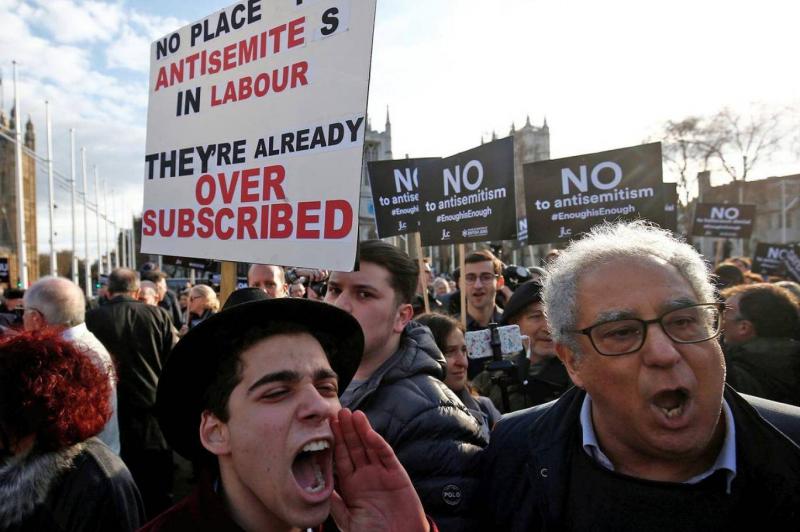A survey conducted by YouGov reveals that the British Labour Party is on its way to a historic electoral victory, set to receive 39% of the votes compared to 22% for the Conservatives, and is expected to secure 431 seats against 102 for the Conservatives. On the eve of the British general elections, the Labour Party appears to have the best chances of winning more than ever, leading in voting intentions and receiving unprecedented support from The Sun newspaper since the Tony Blair era.
After six weeks of campaigning and 14 years of Conservative rule marked by the succession of five prime ministers, four of whom had to resign, the country is anticipated to vote for the center-left on Thursday, potentially leading Keir Starmer to Downing Street. On Wednesday, The Sun, owned by billionaire American-Australian Rupert Murdoch, stated, "It’s time for change, it’s time for the Labour Party." The newspaper supported Labour in the 1997 elections that resulted in Tony Blair's victory, after opposing them for 18 years, and later endorsed the Conservatives, including David Cameron, prior to his win in 2010.
Despite its right-leaning editorial stance, the popular newspaper finds it hard to overlook the imminent change of era and the anticipated defeat of the Conservatives led by Rishi Sunak. Even the unexpected appearance of former Prime Minister Boris Johnson at a Conservative rally on Tuesday evening in London seems unlikely to make a difference. Johnson, who has not maintained good relations with current Prime Minister Rishi Sunak, has stayed away from the campaign until Tuesday's surprise appearance. He remarked, "If you really want to raise taxes... if you want uncontrolled immigration and if you want the futile yielding to Brussels, vote for Labour on Thursday."
Key Conservative figures, led by Rishi Sunak, have urged voters not to give "a large majority" to Labour in the House of Commons. Labour Minister Mel Stride, one of Sunak's prominent supporters, stated on Times Radio on Wednesday, "We are likely on the eve of the biggest Labour victory we have ever seen." Former Home Secretary Suella Braverman wrote in The Telegraph, "It’s over, and we need to prepare for the reality of opposition and the frustration it brings."
After challenging years for the British public, including Brexit, economic and social crises, the COVID-19 pandemic, scandals, and political instability with three Conservative prime ministers in 2022 and five since 2010, voters are looking for one thing: change. There is no atmosphere of excessive optimism or hope, but the British are prepared to give Keir Starmer, the 61-year-old Labour leader who is somewhat unknown, a chance. Starmer, a former human rights lawyer and ex-attorney general, has served as an MP for nine years.
He is expected to become Prime Minister as this position is typically held by the leader of the political party that wins the majority of seats in a general election. Starmer does not possess a charismatic personality and is not widely popular. He has moved cautiously, maintaining ambiguity throughout the campaign to preserve his party's 20-point lead over the Conservatives. His promises have remained limited, and he has warned that Labour does not have a "magic wand." However, this man from a modest background, with a father who worked in a factory and a mother in nursing, speaks about integrity and honesty in politics, often stating, "Country first, then party."
Concerns primarily for voters include the economy, declining public health services, and immigration. The Reform UK party, led by Nigel Farage, who is attempting to be elected to the House of Commons for the eighth time, has made the latter topic the centerpiece of his campaign, linking it to various issues facing Britain such as housing shortages, difficulties in obtaining medical treatment, and lack of job opportunities for some youth. Farage entered the race last month, leading to an immediate boost in his party's voting intentions, even surpassing the Conservatives in some polls.
The 60-year-old former MEP and admirer of former President Donald Trump, who has consistently supported Brexit, has a good chance of being elected in Clacton-on-Sea, a coastal town east of London. Meanwhile, Rishi Sunak, who has served as Prime Minister for twenty months following Liz Truss's resignation after 44 days in Downing Street, has made every effort to avoid disaster for his party. He announced tax cuts and promised better days, warning of a massive tax increase under a Labour government. However, none of this has yielded the desired results, and the Conservatives may face their worst defeat in history.




